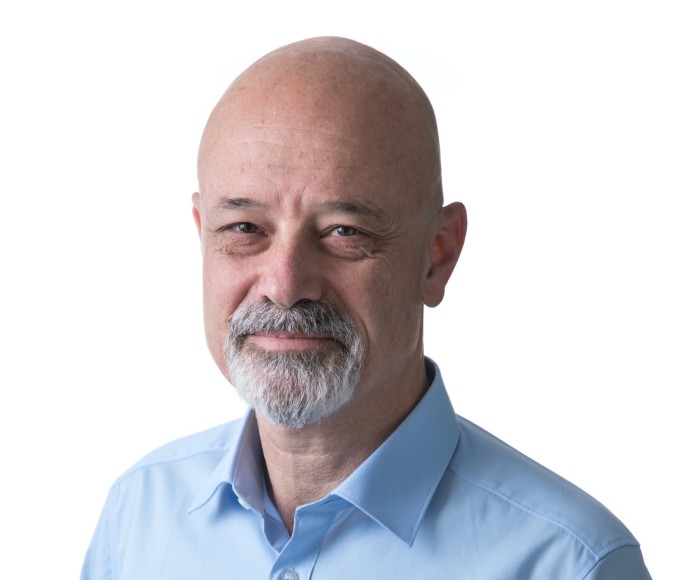A pediatric nurse at Samson Assuta Ashdod University Hospital has developed the concept for the first-ever compact epinephrine injection device (often referred to by the proper name "EpiPen") that can be worn on a child’s wrist like a bracelet.
The device, which would be comfortable to carry, water resistant and have a 16-millimeters long needle, could help save the lives of children and adults who have food, drug and other allergies.
“The majority of children who come into the PICU suffering from anaphylactic shock are kids who have allergies and did not bring their epinephrine injection device with them because it didn’t fit comfortably in their pockets or bags,” explained Sarah Sberro-Cohen, who created the bracelet-pen. “It breaks your heart to see the children and their families.
“In 2022,” she continued, “kids do not need to die or have brain damage from something like this.”
In the US alone, there are 32 million people who have such allergies, and 200,000 are rushed to emergency medicine departments for urgent treatment to prevent or treat anaphylactic shock. Often, as Sberro-Cohen noted, the hospitalization is the result of the person forgetting to carry an epinephrine injection device, containing epinephrine, which is essential first treatment for such allergic reactions.

Sberro-Cohen developed the epinephrine injection device bracelet through the Assuta Ashdod accelerator – a 10-week, day-long, weekly course in which interested staff are guided by volunteer mentors to suggest ideas, projects and inventions. ADAMA Ltd, a crop protection company based in the port city, helps underwrite the course.
The accelerator is run by Dr. Gil Levy, a distinguished gynecologist who heads the hospital’s urogynecology and pelvic reconstructive surgery division.
A startup or seed accelerator is a fixed-term program with mentors and educational components, Levy explained. So far, the hospital has run two courses and hopes to offer a third course in the fall.
“It is, first and foremost, meant for our hospital staff, from doctors and nurses to administrative and maintenance workers, but we will consider opening it to people outside the hospital or from other hospitals,” Levy said. That it is meant for staff is what differentiates it from accelerators at other hospitals.
Levy, who spent 17 years as a urogynecologist at major medical centers in New York, returned to Israel 12 years ago, and when the Ashdod hospital opened, he joined the staff.
“The accelerator has a judging committee composed not only of physicians but also people in innovation and business,” Levy continued. “When a staffer at a state hospital suggests an idea and it is implemented, the hospital takes a 65% cut in the profits. Thanks to our accelerator, if your suggested technology becomes a product, Assuta staffers will get 80% of its ownership – so this is a tremendous impetus to think out of the box.”
The entrepreneurs enjoy expert training and guidance from mentors from the worlds of health and technology, as well as from experienced ADAMA employees who will help participants master crucial aspects of running a business, such as building a business model, marketing strategies, pitching to investors and the process of raising funds.
“The first idea for our accelerator came from Dr. Oshry Barel, who developed a surgical device with an elegant way to remove a woman’s uterus containing a large growth through a very small hole,” Levy noted. “A company in northern Israel has already signed a deal to make this device.”
Another idea that he hopes will reach fruition is one that would allow cancer patients to do home tests and get results to determine if they are able to go in for their chemotherapy, rather than having to trek to the hospital and finding out they are ineligible for treatment that day.
Another invention is ProTecEar, a medical product meant to replace a standard tube ventilating button inserted into the middle-ears of small children who suffer from repeated infections. The button would be coated with a material that repels the formation of biofilm and eliminates complications in postoperative surgery.
Discharge from the middle ear affects many infants and toddlers by the age of three; some of them need intravenous antibiotics and may suffer permanent hearing loss.
A suggestion to speed up the early detection and diagnosis of viruses like COVID-19 by replacing inaccurate methods like temperature checks with more effective options was proposed by Dr. Ziv Sevilya, director of the research and development laboratory, and his colleagues. TransMed, a robot proposed by Dr. Idan Markowitz, would move patients from one part of the hospital to another to save manpower and money.
Sberro-Cohen said she has already met with engineers and knows that creating her epinephrine injection device is possible. Now, she is just looking for an investor to help make it happen. She said it would take between five to seven years from the time the device was made until it received full Food and Drug Administration approval as a medical device.
Assuta is the first public hospital to be built in Israel in four decades. In fewer than five years, it has built up a staff of 2,000 people, including 450 physicians and 550 nurses. The hospital has nine stories and is the first fully bomb-sheltered designed hospital, protecting patients from missiles from neighboring Gaza.
Levy said the hospital established the accelerator as a catalyst for staff to put on their thinking caps and bring innovative ideas to the table for the sake of their patients’ health and the health of people in Israel and around the world.
This article was written in cooperation with Samson Assuta Ashdod University Hospital. Learn more.
